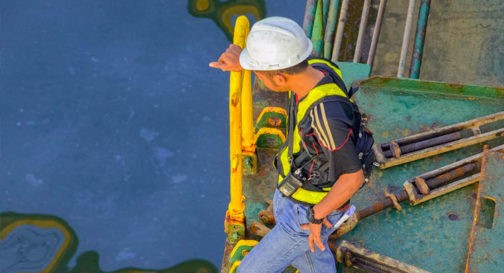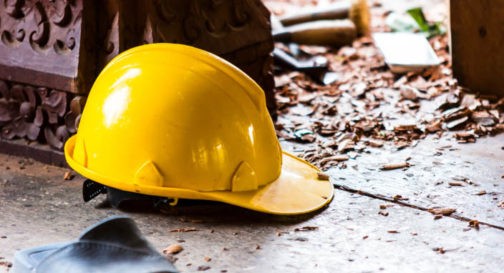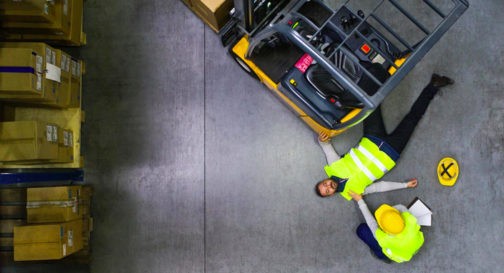How to File a Lawsuit for a Longshore Accident in California
March 05, 2023
What is the Process for Filing a Longshore Accident Lawsuit in California?
California’s longshore workers play a vital role in this country’s economy. Unfortunately, serious accidents are not uncommon due to the nature of the work. From heavy machinery malfunctions to falling objects, there are myriad ways to get injured as a longshoreman. If you’ve been hurt on the job, you may be exploring your options for recovering damages, such as filing a lawsuit against the responsible parties. But how do you begin this process?
First, you must ensure that your situation qualifies for a lawsuit before proceeding with your case. This requires an investigation of your accident and the circumstances surrounding it. A knowledgeable California longshoreman accident lawyer can help determine whether you have a valid lawsuit. Even if you aren’t able to take your case to court, you still have options to recover damages for your injuries. However, prompt action is essential after any longshore accident to ensure that you meet all filing deadlines and do not forfeit your right to seek the compensation you are entitled to.
Can You Sue Your Employer or Coworkers for a Longshore Accident?
Longshore accidents often result from a mistake or oversight on the part of your employer or coworkers. You may have been accidentally exposed to hazardous chemicals or suffered injuries when another employee misused a piece of equipment.
In these situations, you cannot file a lawsuit against your employer or the at-fault employee. Instead, you must file a claim under the Longshore and Harbor Workers’ Compensation Act (LHWCA).
What is the LHWCA?
The LHWCA is a federal law that provides benefits to individuals who are injured while working a maritime job on the navigable waters of the US or any connecting areas, such as docks, wharves, and shipyards. The law was enacted to provide protection and benefits to workers who would not be covered by typical workers’ compensation and were not eligible for coverage under the Jones Act because they were not part of the crew of a vessel.
The LHWCA functions similarly to workers’ compensation. It is a no-fault insurance that pays for medical care, vocational rehabilitation, and a portion of lost wages after a person suffers an on-the-job injury. Covered injuries may result from accidents or from a disability or illness caused by repetitive movements or exposure to dangerous substances. The LHWCA will also pay survivor’s benefits to a worker’s family if they are killed in a work-related accident. Because the LHWCA provides a remedy to injured employees, they cannot pursue their employer or coworkers for further damages in court.
When Can You File a Lawsuit for Your Longshore Accident?
If your employer and coworkers cannot be held liable in court for your injuries, it may seem that there would be no situations where you would need to file a lawsuit for your damages. However, this is not true. Shipyards, docks, and terminals are bustling with activity, and some individuals working alongside you may not actually be your coworkers. Instead, they could be third-party contractors hired by another employer to perform jobs. If one of these individuals caused your injury through negligence, carelessness, or malice, they could be held responsible for their actions through a lawsuit.
Alternatively, you may have grounds for a product liability lawsuit in addition to your LHWCA claim. If your injuries resulted from defective, malfunctioning, or unsafe machinery or faulty safety equipment, the item’s manufacturer could be liable for the damages you suffered. If you have questions about whether you have a viable lawsuit in your longshore accident case, contact a knowledgeable maritime worker injury lawyer to discuss your legal rights and options.
Who Can Be Held Responsible in a Longshore Accident Lawsuit?
If anyone other than your employer and coworkers was wholly or partially at fault for your accident, you could bring a civil lawsuit against them in court. Third-party contractors are common culprits in longshore accidents and may include:
- Forklift operators
- Delivery drivers
- Truckers
- Ship captains and crew
- Crane and other heavy machinery operators
- Longshore workers employed by other companies
Additionally, if a defective or dangerous product caused your injuries, you may have a case against the parties involved with creating and selling the product, such as:
- Manufacturer
- Assembler
- Designer
- Wholesaler
- Distributor
- Retailer
What Damages Can You Recover in a Civil Lawsuit?
A longshore accident can be devastating for you and your family. You may be temporarily, or even permanently, unable to work and have a mountain of medical debt from your treatment. A civil lawsuit allows you to seek damages for the many losses caused by your injuries. At the conclusion of a successful lawsuit, the court may award you three main types of damages.
Economic Damages
These damages compensate you for the financial losses you’ve suffered, including:
- Medical expenses
- Therapy and rehabilitation costs
- Lost wages
- Loss of future earning potential
- Costs for accessibility upgrades to your home and vehicle
Non-Economic Damages
Serious injuries don’t just have a financial impact; their effects reach into all aspects of your life.
While LHWCA claims do not cover these types of losses, they can be recovered in a civil lawsuit and include the following:
- Pain and suffering
- Scarring
- Disfigurement
- Emotional distress
Punitive Damages
While relatively uncommon, the court may opt to award punitive damages if the defendant acted intentionally to cause harm or showed a complete lack of regard for the safety of others. Punitive damages are a method of punishing an individual for their grossly negligent acts.
How Can a Longshore Accident Attorney Assist You?
The ports of California are fast-paced environments with high risks of injury for the longshore workers employed there. If you’ve been injured at Long Beach or any of the other ports, it is critical to fully understand your options for compensation, from the LHWCA to civil lawsuits. An experienced Long Beach longshore accident attorney can help you determine the best course of action for your case so you can get the full recovery you deserve. However, time limits on these claims can be very short, so seeking legal counsel as soon as possible is essential. Call today for a free case evaluation.













